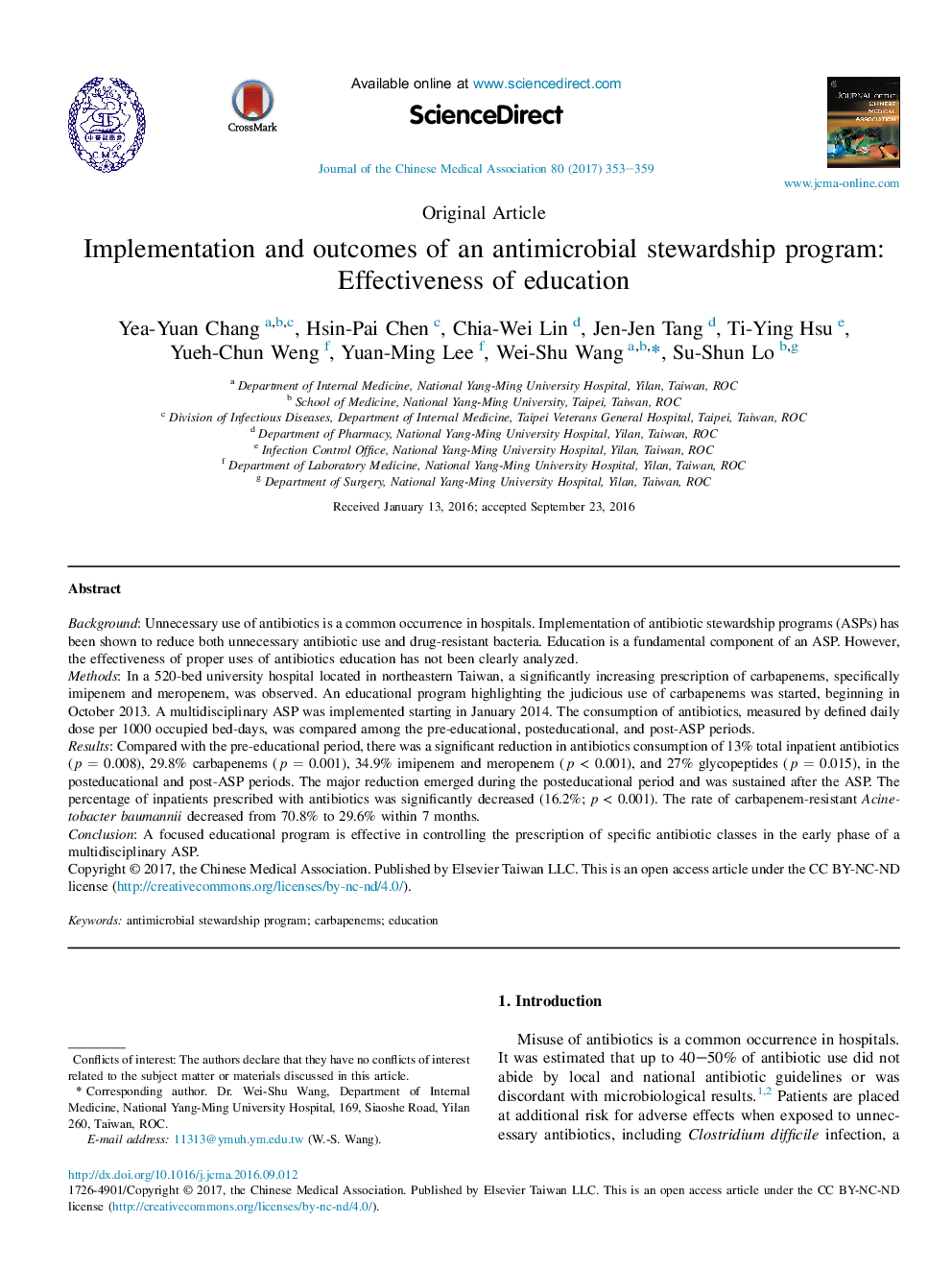| Article ID | Journal | Published Year | Pages | File Type |
|---|---|---|---|---|
| 5679781 | Journal of the Chinese Medical Association | 2017 | 7 Pages |
BackgroundUnnecessary use of antibiotics is a common occurrence in hospitals. Implementation of antibiotic stewardship programs (ASPs) has been shown to reduce both unnecessary antibiotic use and drug-resistant bacteria. Education is a fundamental component of an ASP. However, the effectiveness of proper uses of antibiotics education has not been clearly analyzed.MethodsIn a 520-bed university hospital located in northeastern Taiwan, a significantly increasing prescription of carbapenems, specifically imipenem and meropenem, was observed. An educational program highlighting the judicious use of carbapenems was started, beginning in October 2013. A multidisciplinary ASP was implemented starting in January 2014. The consumption of antibiotics, measured by defined daily dose per 1000 occupied bed-days, was compared among the pre-educational, posteducational, and post-ASP periods.ResultsCompared with the pre-educational period, there was a significant reduction in antibiotics consumption of 13% total inpatient antibiotics (p = 0.008), 29.8% carbapenems (p = 0.001), 34.9% imipenem and meropenem (p < 0.001), and 27% glycopeptides (p = 0.015), in the posteducational and post-ASP periods. The major reduction emerged during the posteducational period and was sustained after the ASP. The percentage of inpatients prescribed with antibiotics was significantly decreased (16.2%; p < 0.001). The rate of carbapenem-resistant Acinetobacter baumannii decreased from 70.8% to 29.6% within 7 months.ConclusionA focused educational program is effective in controlling the prescription of specific antibiotic classes in the early phase of a multidisciplinary ASP.
